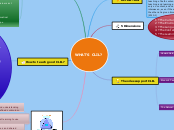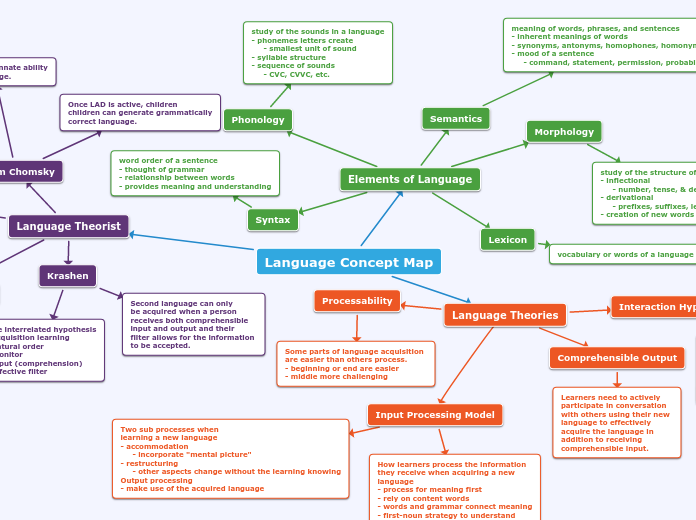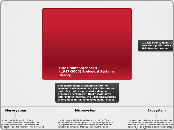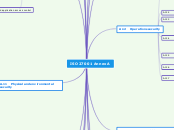Floating topic
100 concepts
Mnemonic Devices
Interference
Verbal Mediation
Learned Helplessness
Distributive cognition
Example: Being able to recall information in the way the teacher asks to list. Helps in making connections.
Decay
Material that is forgotten at a uncertain rate over time.
Stimulus
Extrinsic Motivation
Subtopic
Intrinsic Motivation
Negative Reinforcement
Positive Reinforcement
Constructivism
Behaviorism
Frame positive behaviors rather than negative
Parallel Thinking
Zone of Proximal Development
Cueing
Something occurs that alerts you to act.
Physical Arrangement
Heuristic
A method or process that is not the general way we use to learn.
Self-Regulate
Anxieties
Trait Anxiety
A child is anxious or overexcited to a point that certain topics or ideas may be overlooked in their learning.
Facilitating Anxiety
State Anxiety
A point wherein the student is nervous in learning as there may be a fear of succeeding or ability to complete aspects of the lesson
Debilitating Anxiety
Personal Fable
Positive Transfer
Recalling how the activity is similar
Negative Transfer
Overgeneralization
Undergeneralization
Disequilibrium
Personal Theory
An over/undergeneralization what misconceptions are believed.
Failure to Store
Long-term memory
working/short-term memory
Failure to Retrieve
Correlation Features
Defining Features
Scheme & Schema
Stored knowledge.
Erik Erickson's Psychological Stages
Kohlberg's stags of Moral Development
People
Vygotsky
Piaget
Cognitive stages
Sensorimotor
Preoperational
Concrete Operational
Formal Operations
Erikson
Social Development
Identity vs identity diffusion
Trust vs Mistrust
Phatic Communication
Use of touch to communicate
Attribution Theory
The ways that you view instances (internally/externally, unstable/stable, and controllable/uncontrollable.) Claiming
Metacognition
Occurs when you are thinking about your thinking
Mirrored Neurons
The way one momentarily copies anothers emotion
Cognitive Domain
Affective Domain
Psychomotor
Control Language
A command given with no explanation to why it should be accomplished.
Informational Language
A command given and explaining what will occur once the command is completed.
Individual Physical State
Prototype
Characteristics that describe an object.
Self-concept
The way you view yourself.
Self-Efficacy
Self-view of one's own confidence.









